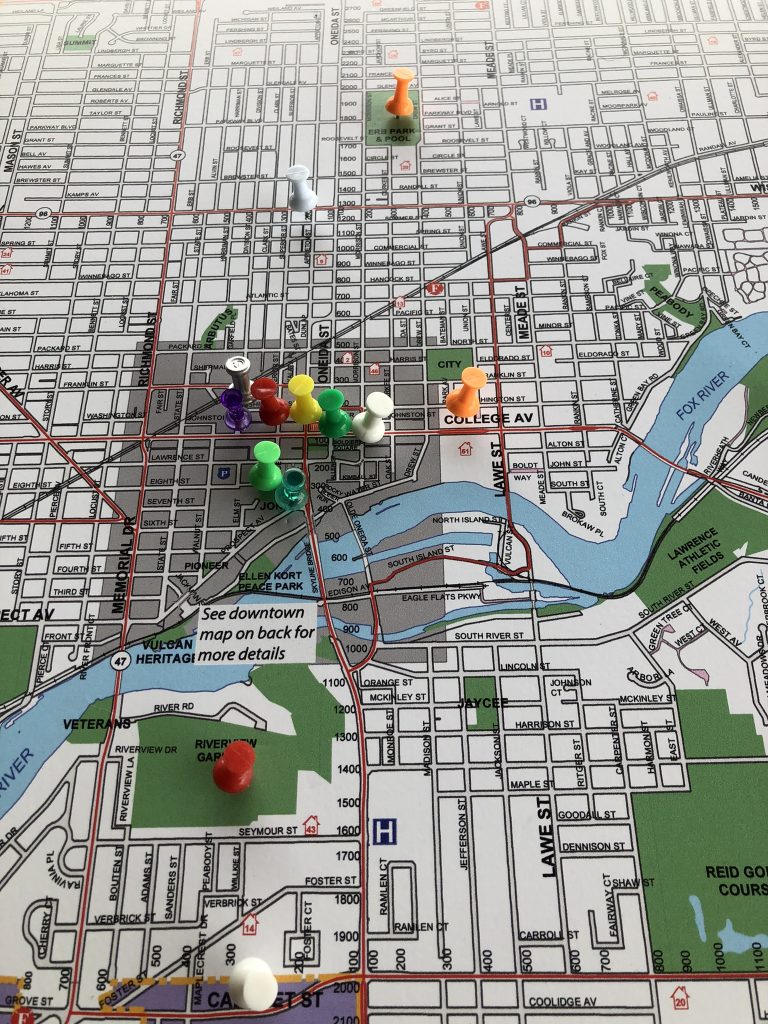
Recognizing Community Assets

A Roundup of August's Community Powered Events and Activities
Over the past month, the Community Powered Project Coordinators have focused on uncovering community assets using asset mapping. Asset mapping is a method that allows communities to account for their strengths, challenges, and resources by mapping them geographically. Asset maps help communities to see how space is used in their community and where there are gaps in resources or areas of need.
In each of our Community Powered communities, asset mapping has also allowed the CPPCs to get to know community history and local businesses and nonprofits. Now, they have started bringing these asset maps out into the community to ask for community input.
In Spooner, Emily hosted her first “Help Spooner Grow” event on August 5th and 6th. She asked Spooner residents to write down the answers to the following questions: What are Spooner’s strengths? What or who can help Spooner grow? What needs our help to grow in Spooner?

This first set of responses helped her consider what assets were already in the community and what the community wanted or needed more of. These responses will help guide Emily’s future Community Powered project.
In Appleton, Rachel conducted interviews with local entrepreneurs during an Appleton Public Library event on August 8. She asked them about their businesses and their dreams for Appleton. You can see a gallery of Rachel’s interviews on her Community Powered blog.

Rachel continued her work learning about local resources by hosting an Asset Mapping event in Appleton Public Library on August 13. For this event, she invited visitors to the library’s circulation desk to add a pin to the map noting meaningful places and tell them about why that place mattered to them. Rachel then transposed these pins onto a digital map, which she plans to add to as time goes on. You can see Appleton’s asset map here.


Asset maps are a useful tool not only for our CPPCs, who have used them as a way to get to know their communities but also for the larger community. Asset maps help communities see how neighbors and friends perceive the town around them and can help everyone see what resources already exist and ways they could grow.





